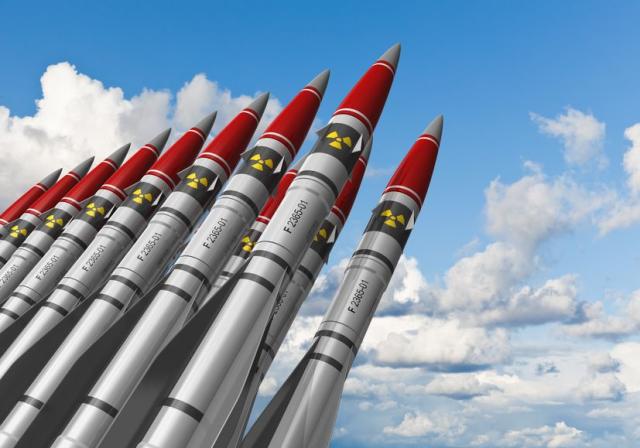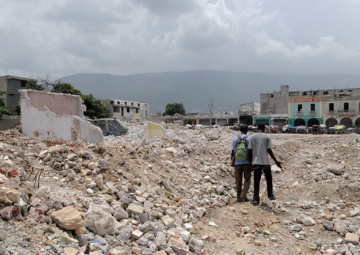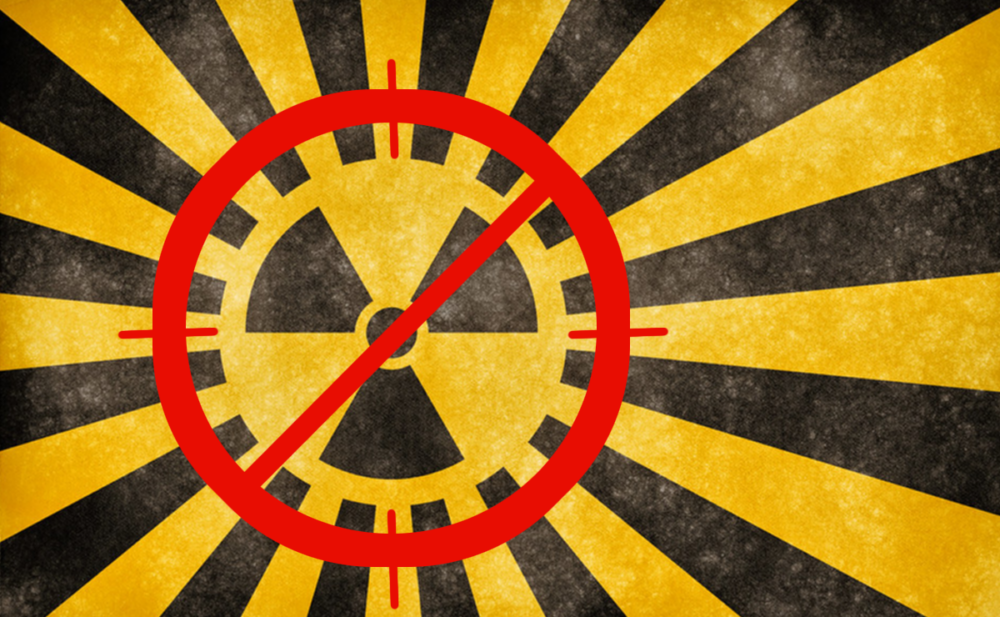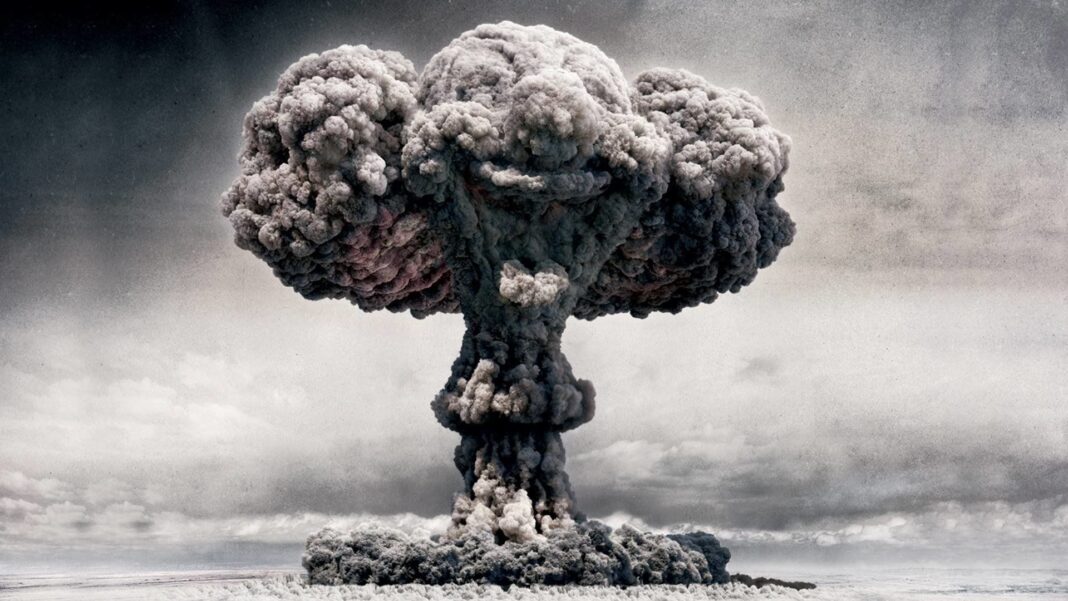Introduction: In the ominous shadow of nuclear weapons, the world treads on the precipice of unimaginable consequences. What unfolds if these devastating instruments are unleashed. Delving into the immediate and long-term impacts, environmental ramifications, and the stark reasons why nuclear weapons are deemed the worst, this article navigates the intricate web of destruction and advocates for a collective call to action. As history and the truth about nukes unravel, it becomes evident that understanding the gravity of nuclear weapon usage is not just a matter of awareness; it is a plea for global cooperation, humanitarian responsibility, and the urgency to banish these instruments of mass destruction from our shared future. Join us in exploring the crucial facets of “What happens if nuclear weapons are used?”—a journey that transcends borders, compels reflection, and calls for a united stance against the madness that threatens our world.
If a nuclear weapon detonates, what happens?
The detonation of a nuclear weapon casts an immediate and ominous shadow, unfurling consequences that reverberate both in the short term and linger across the annals of time.
Immediate Effects
In the initial moments, the impact is catastrophic. A blinding flash, a deafening roar—the hallmark signs of a nuclear explosion. The immediate effects unleash a torrent of destruction, with shockwaves leveling structures and intense heat searing the surroundings. Lives are extinguished in an instant, and the affected landscape is transformed into a haunting tableau of devastation.
Long-Term Impact
Beyond the immediate chaos lies the enduring aftermath. Long-term effects of nuclear detonation extend far beyond the initial blast. Radiation, the silent and insidious companion, lingers, contaminating air, water, and soil. This toxic legacy persists, causing severe health issues for those exposed and leaving a haunting imprint on future generations.
As we explore the aftermath of a nuclear detonation, the gravity of immediate and long-term consequences becomes starkly evident. It prompts reflection on the imperative to prevent such a scenario, advocating for global initiatives that ensure the world is spared from the enduring horrors of nuclear warfare. The exploration of these impacts stands as a poignant reminder that the prevention of nuclear weapons usage is not just a political endeavor; it is a collective responsibility to safeguard humanity and preserve the sanctity of our shared future.
Environmental and Socio-Economic Ramifications
Nuclear weapons, once detonated, unleash a catastrophic ripple effect that transcends human casualties, extending its tentacles to the environment and socio-economic fabric of nations.
Environmental and socio-economic impact of nuclear weapons
Climate Change, Famine, and Nuclear Weapons
The environmental fallout of nuclear weapons extends to the delicate balance of our planet. A single detonation can inject massive amounts of debris into the atmosphere, triggering a phenomenon known as “nuclear winter.” The resulting climatic disruptions could lead to drastic drops in temperature, affecting agricultural productivity and potentially inducing widespread famine. It’s a grim reminder that the consequences of nuclear warfare reach far beyond the immediate blast zone.
Immediate Effects on the Environment
The detonation of nuclear weapons inflicts severe damage on ecosystems. After the shockwave subsides, fires sparked by the intense heat release amounts of soot and particles, into the atmosphere. This nuclear fallout contaminates the air, water and soil posing a long term threat to our environment and all living beings.
The socio economic
consequences of weapons extend beyond the loss of human lives. The destruction of infrastructure severely impacts economies. Disrupts structures. Nations are faced with the challenge of rebuilding, diverting resources from areas such as healthcare, education and poverty alleviation. As we navigate the relationship between weapons and their effects on our environment and sociology economic stability a harsh reality. Preventing conflicts is not a matter of geopolitical strategy,
It is a pressing call to safeguard our planets delicate balance and preserve societal well being.
The interconnections between concerns, sociology economic factors and humanitarian considerations emphasizes the need for united global efforts, against the looming threat of nuclear devastation.
Why Nuclear Weapons are the Worst
Why Nuclear Weapons are the Worst
Delving into the core of why nuclear weapons stand as harbingers of unparalleled devastation and strife reveals a chilling tapestry of destruction, affecting not just nations but the very essence of human.
They cause a lot of destruction and death
At the crux of the matter lies the sheer scale of destruction inflicted by nuclear weapons. Their unparalleled capacity to level cities and extinguish lives on a mass scale makes them a grim symbol of devastation, leaving scars that endure for generations.

Civilians are the main victims
In the grim theatre of nuclear warfare, civilians emerge as the primary victims. Unprotected and often unable to escape the horrors unleashed by a nuclear explosion, they bear the brunt of the immediate and long-term consequences, facing not only physical harm but enduring psychological trauma.
They lead to high levels of radiation
Nuclear weapons release not only immediate destructive power but also insidious radiation.
Exposure, to radiation levels can have detrimental effects on peoples health, such, as the development of cancer, genetic mutations and long term health.
Consequences that can last for many years or even across generations..
They could lead to climate disruption and worldwide famine

Beyond the immediate impact as they have the potential to cause climate disruption and widespread famine. The environmental aftermath of these weapons could disrupt the climate on a scale potentially leading to a scenario known as a nuclear winter.
This catastrophic climatic shift poses the ominous specter of widespread famine, further exacerbating the humanitarian crisis.
Humanitarian aid wouldn’t be provided to victims:
The aftermath of nuclear warfare presents a bleak scenario where the scale of devastation could overwhelm international humanitarian efforts. The sheer magnitude of destruction and the potential for ongoing radiation make it challenging to provide adequate aid to the afflicted populations.
Widespread implications to health and the environment
Nuclear weapons not cause destruction to human lives but also have a lasting impact, on the environment. The extensive consequences of fallout, which involve the contamination of air, water and soil, with materials leave behind a hazardous legacy that profoundly affects ecosystems and biodiversity.
Misuse of public funds
Investing in the development and upkeep of weapons takes away resources that could be used to tackle global problems. The tremendous financial strain caused by programs could be better spent on addressing poverty, healthcare, education and other crucial socio economic issues that nations are grappling with.
Unravelling the layers of why nuclear weapons are deemed the worst transcends geopolitical considerations. It unearths a humanitarian crisis, emphasizing the urgent need for global cooperation, disarmament, and a collective commitment to banish these instruments of mass destruction from our shared future. The exploration of these reasons serves as a stark reminder of the imperative to act collectively to prevent the catastrophic consequences of nuclear warfare.
Taking Action
Given the danger that nuclear weapons present there is an urgent demand, for action. Merely understanding the consequences is insufficient.
We must actively strive for disarmament push for a ban and foster a movement to eliminate this dangerous threat.

Why a Ban?
The call for a ban on nuclear weapons resonates with the recognition that the risks far outweigh any perceived benefits. Advocates argue that a world without nuclear weapons is a safer world.
Free from the constant specter of catastrophic warfare that could plunge nations into irreversible despair.
Historical Perspectives
The push, for disarmament takes inspiration from events in history. Agreements such as the Treaty on the Non Proliferation of Nuclear Weapons (NPT) have played a role, in limiting the proliferation of weapons. However, the urgency remains to progress beyond containment and actively work towards complete disarmament.
Global Cooperation
Addressing the nuclear threat demands unprecedented levels of global cooperation. International organizations, diplomatic endeavors and grassroots movements all have roles, in fostering understanding encouraging constructive conversations and nurturing a collective dedication to achieving disarmament.
Public Awareness and Activism
The effort to combat weapons depends on raising awareness and encouraging people to take action. Grassroots movements, educational campaigns and advocacy efforts play a role, in driving change and inspiring communities .
Technological Safeguards
Advancements in technology also offer potential safeguards. From international monitoring systems to advancements in verification technologies, these innovations contribute to building trust among nations and ensuring compliance with disarmament agreements.
Political Will
Perhaps the most critical factor in the journey towards disarmament is the political will of nations. Leaders must prioritize the safety and well-being of their citizens over the pursuit of nuclear prowess, fostering an environment conducive to meaningful dialogue and concrete action
The Role of Non-Governmental
Organizations NGOs dedicated to disarmament play a pivotal role. Through research, advocacy, and collaboration, these organizations contribute to shaping policies, influencing public opinion, and holding governments accountable for their commitments to nuclear disarmament.. Ultimately addressing the issue of weapons goes beyond the responsibility of governments and international organizations. It is a call, for individuals, communities and all global citizens to take action. The movement to prevent chaos and destruction is an effort that encourages us to unite express our opinions and actively strive for a future where the risk of nuclear devastation becomes nothing more than a chapter, in our past.
Conclusion
In the unsettling panorama of “What happens if nuclear weapons are used”.
we find not only a chilling exploration of devastation but also a resolute call to action.
As we navigate the immediate and enduring consequences, environmental and socio-economic fallout.
And the grim reasons that make nuclear weapons the worst, a collective responsibility emerges. It transcends borders, ideologies, and political affiliations. The imperative for global cooperation, disarmament, and a united stance against the madness of nuclear warfare is not a choice.
It is the moral duty of humanity.
The urgent plea to prohibit these tools of destruction echoes the actions taken in the past relying on technological protections.
The path, towards a world, from the looming threat of weapons is difficult but it calls upon us to actively engage, support and become part of this movement.
It is a call to protect not our time but also the future we share with generations to come—a future.

